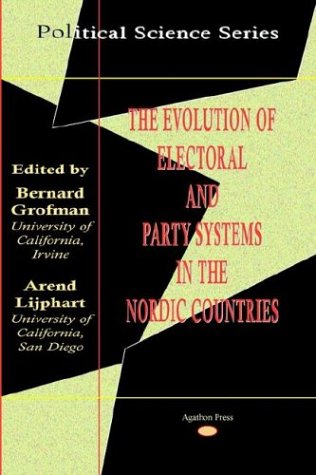Product desciption
The Evolution Of Electoral And Party Systems In The Nordic Countries Bernard Grofman Et Al by Bernard Grofman Et Al., Bernard Grofman, Arend Lijphart 9780875861388, 9780875861395, 9780875861685, 0875861385, 0875861393, 0875861687 instant download after payment.
Illustrating how changing laws can shape future elections, each chapter in this collection narrates the history of, and the largely partisan political maneuvering behind, the evolution of electoral laws in the five Nordic countries. Because the chapters are written to a common overall outline, and include a number of standard tables, they have an unusually high degree of comparability a great asset. Many political scientists in English-speaking countries tend to think of Proportional Representation in terms of the underlying concepts of proportionality and examples that institutionalize it in relative pure form, such as Israel. Reading these chapters, one gains a more sophisticated understanding of the variety and complexities of real PR systems, including the interaction of geographical representation with the principle of proportionality, the practical stakes behind the seemingly technical choice of allocation formulas, the origin of the "modified" St. Laguë divisors, the functioning of apparentement and other vote-pooling devices, the interaction of strategic advantage and normative principles in the development of the Proportional Representation systems, the role of partisan manipulation, etc. A model of comparative, cumulative political science, and of "embedded system" research design, the book is part of a major project by both Grofman and Lijphart to bring a vast improvement in rigor and systemicity in the analysis of electoral laws and their impacts. Each chapter offers a narration of the history of, and political (largely partisan) maneuvering behind, the evolution of electoral laws in the five Nordic countries. In this respect, it is in the tradition of A Short History of Electoral Systems in Western Europe, by Carstairs, 1980 (out of print). Yet, it differs from that work, and represents a significant advance on it, by focusing on fewer countries and thus going into greater depth and wider history span. 1. Bernard Grofman and Arend Lijphart, Introduction 2. Jorgen Elklit, Denmark 3. Jan Sundberg, Finland 4. Olafur Hardarrson, Iceland 5. Bernt Aardal, Norway 6. Bo Sarlvik (with the assistance of Peter Eisaisson and Ola Jodal), Sweden Bernard Grofman has edited or co-edited sixteen books, three with Arnold Lijphart. Two of their collaborations won the Hallett Prize of the American Political Science Association (the prize is granted for works that have proved to have a lasting impact in the field, at least ten years beyond the date of publication: Lijphart and Grofman, Choosing an Electoral System, 1984; Grofman and Lijphart, Electoral Laws and Their Political Consequences, 1986). This volume is one of four collections on electoral systems originating in Conferences on Political Economy at the University of California at Irvine. The others deal with elections using the single non-transferable vote (Michigan, 1999), single transferable vote (Michigan, 2000), and mixed-member arrangements (Oxford, 2000).


